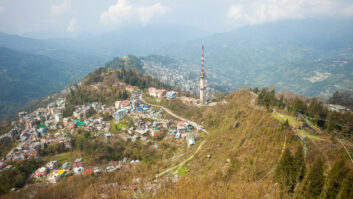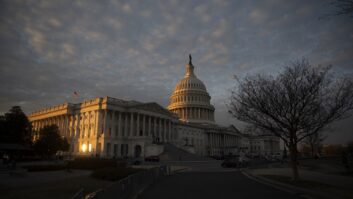Radio World’s “Guest Commentaries” section provides a platform for industry thought leaders and other readers to share their perspective on radio news, technological trends and more. If you’d like to contribute a commentary, or reply to an already published piece, send a submission to [email protected].
The author is an award-winning youth advocate. He is the co-founder of a number of community initiatives including the Youth Congress, a premier youth-led organization in Kenya.
Radio serves as an important tool for public education and information. More importantly, at the global level, radio remains the most widely consumed media. In Africa, radio continues to be one of the best media platforms to reach the most people, especially in rural areas.
This year, the world celebrated World Radio Day under the theme, “Radio and Peace,” highlighting the important role the medium plays in promoting peace and averting conflict — encouraging understanding, reconciliation and reconstruction. As one of the most accessible types of media worldwide, radio is also key for promoting diversity, dialogue and solidarity.
In Madagascar, Studio Sifaka radio program, supported by the United Nations Peacebuilding Fund and implemented by Fondation Hirondelle, targets young Malagasy, enabling them to engage in dialogue peacefully. In particular, Studio Sifaka, facilitates the contribution of young people to the development and peacebuilding efforts in the country.
Since December 2019, Studio Sifaka has been producing a two-hour daily radio program, broadcasted by a network of 24 local radio partners that covers about 50 percent of the total population of Madagascar. The content is produced by young Malagasy journalists.
Similarly, Radio Waumini in Kenya encourages listeners to embrace a peaceful co-existence in the community and society as a whole. In one of its programs titled “Amani Imani Peace and Faith,” the station highlights the interdependence between peace and faith — where there is peace, there is faith and where there is faith there will be peace. The Amani Imani program discusses aspects of human life that enhance peace individually, as well as in the family, community and nation.
In 2022, a consortium consisting of Free Press Unlimited, Acted, OXFAM, CONCERN, COOP and IMPACT under the RELSUDE-project, rebuilt and brought back on air six radio stations, which continue to fulfill their role as peace builders and stimulators of dialogue in local communities in Central African Republic (CAR). The radio stations have been vital in conflict prevention, rehabilitation, reconciliation and stabilization, especially in the South eastern part of the country, which is the most unstable and conflict-prone region. Radio Beressa, ESCA and Zereda are some of the six radio stations that were rehabilitated under the project.
In Senegal, Radio Kassumay, an all women station, is promoting peace, dialogue and unity in the country’s Casamance region. Since it was established, the broadcast has become an essential platform for the promotion of peace in the country. The radio station is part of a group of 18 stations run entirely by women in Senegal’s southern region, all of which have played a key role in breaking the communication barrier between opposing sides in Casamance conflict.
These are just some of the examples of how radio in Africa continues to foster peace and avert conflict in different countries on the continent. These and many other radio stations in Africa need to be strengthened for sustainable peace to be realized.
As Tawfik Jelassi, assistant director-general for communication and information sector at UNESCO, remarked on the occasion of the World Radio Day 2023, radio is an integral part of peace and stability — a pillar for conflict prevention and peacebuilding.
[Also by this author: “Celebrating Africa’s Radio Stars”]







